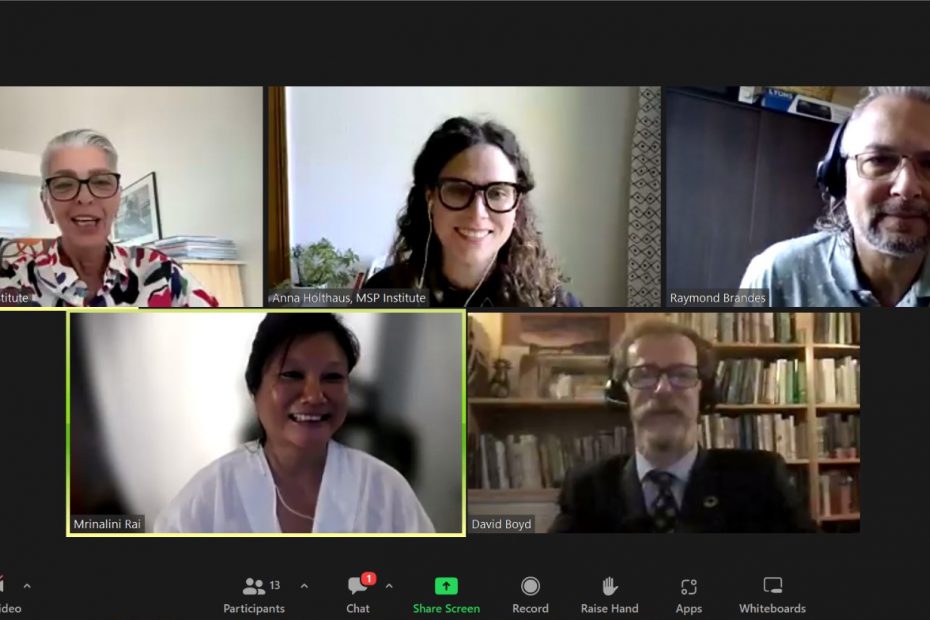Women4Biodiversity and MSP Institute jointly organized a webinar “A new chemicals framework that leaves no one behind: Webinar on gender and human rights in SAICM Beyond 2020” on 13 June 2023 from 2 PM to 3.30 PM CEST.
The speaker panel included,
- David Boyd, United Nations Special Rapporteur on Human Rights and the Environment
- Raymond Brandes, Programme Management Officer (Gender), United Nations Environment Programme (UNEP)
- Mrinalini Rai, Director, Women4Biodiversity
- Sherika Whitelocke-Ballingsingh, on behalf of the informal Women and Gender at Strategic Approach to International Chemicals Management (SAICM) Group
- Minu Hemmati and Anna Holthaus, moderators, MSP Institute
The main focus of the webinar was to discuss the language of human rights and the role of women framed in the draft document “Intersessional Process Single Consolidated Document”. It will be further discussed at the Fifth session of the International Conference for Chemicals Management (ICCM5) in September later this year.
The speakers came from diverse backgrounds but were united in their positions in stating the importance of ensuring that language around human rights and gender responsiveness should be retained in the draft document.
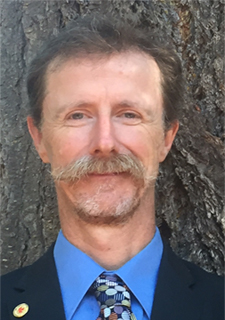
David Boyd opened the floor with a historical overview of the development of human rights since the adoption of the Universal Declaration of Human Rights. 75 years after its adoption, women and girls are still disproportionately vulnerable to toxic chemicals and waste resulting in cancer, early puberty, increased infertility and many other maladies. They are also disproportionately impacted worldwide due to gender biases and stereotypes among many other reasons, and yet this impact is not reflected in sex-disaggregated data. He reiterated that all individuals have the right to a clean, healthy and sustainable environment. The right was acknowledged by the United Nations Human Rights Council during its 48th session in October 2021 in HRC/RES/48/13 and subsequently by the United Nations General Assembly on 28 July 2022 in A/RES/76/300. He added that States and businesses have an international human rights obligation to prevent foreseeable human rights violations. Boyd also shared his report “Women, girls and the Right to a Clean, healthy and sustainable environment”, which he presented during the 52nd session of the Human Rights Council from 27 February–31 March this year.
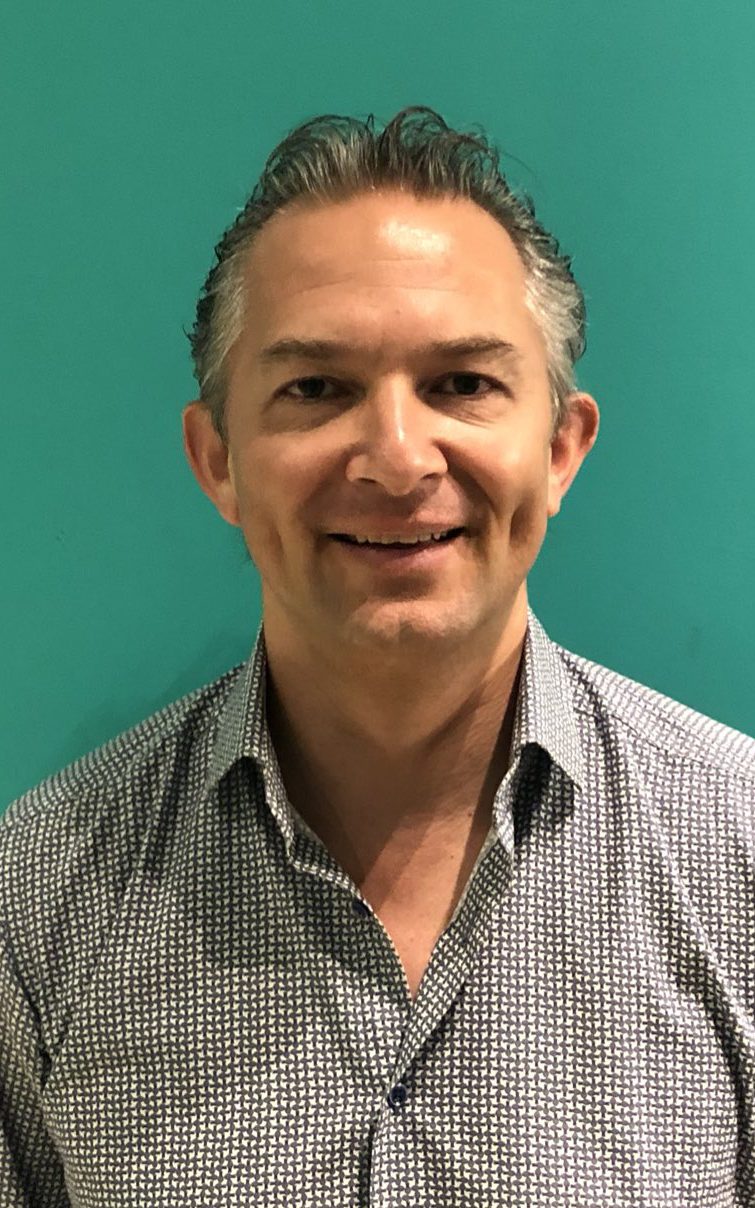
Raymond Brandes focused on the importance of having qualitative gender indicators such as experience, and not just quantitative gender indicators, in order to have data that accurately reflects the reality of women and girls. “Gender-sensitive” programs may help women but do not change the gender roles and the power structures between women and men. Brandes argued for using terms like “gender-transformative” or “gender-responsive” projects/programmes.
Mrinalini Rai reflected on the outcomes of the Fifteenth Meeting of the Conference of Parties to the Convention on Biological Diversity (CBD COP15) that took place in December 2022, where having the stand-alone target on gender, Target 23, in KMGBF was adopted and thus, loudly cheered for.
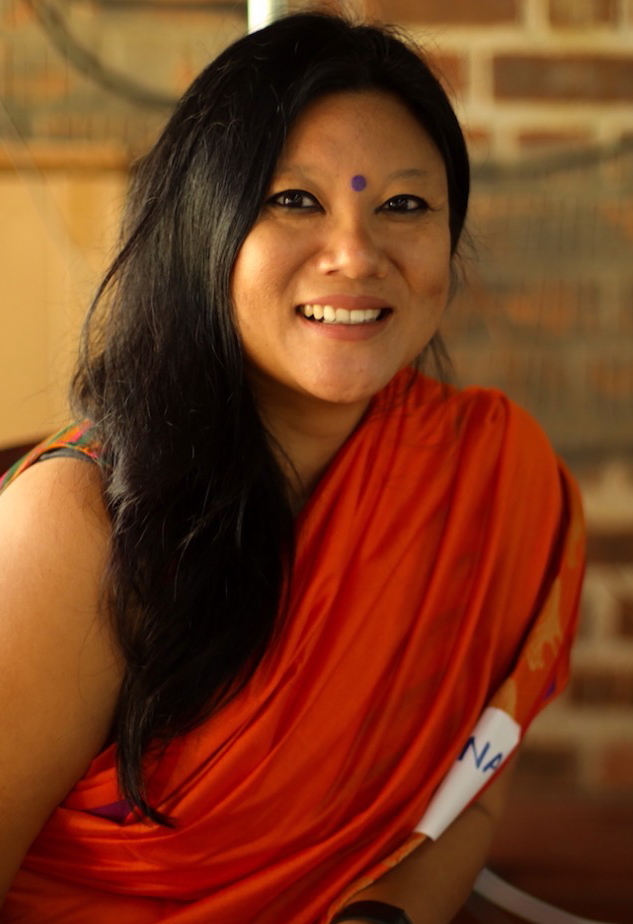
She stressed the need for building synergies between international policy discussions, and the relevance and impacts they have with and among each other. She added that the language in the chemicals draft document should be retained in reflection of the similar language in the KMGBF on human rights and gender, including Target 7*, which aims to reduce pollution risks and the negative impact of pollution from all sources by 2030.
Rai also talked about how women are usually identified as a vulnerable group or victims but it is about time to recognize them as “agents of change”, and that it is time to move from aspiration to action. Furthermore, she said the draft document doesn’t clearly distinguish the right-holders and stakeholders,which could possibly evade the clarity of response and accountability.
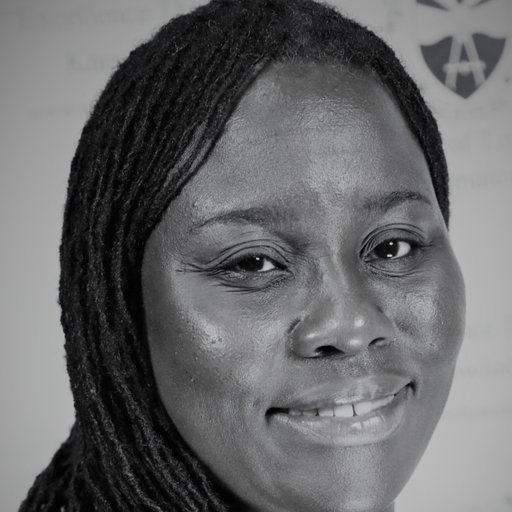
Sherika Whitelocke-Ballingsingh summed up the webinar and added that linkages between chemical exposure, waste and women need to be recognized. Women bring scientific knowledge, community knowledge, and holistic knowledge to the table because they are engaged in all aspects of society. Therefore, women need to be at the discussion table.
Below are the key recommendations from the webinar:
- The chemicals draft document should include recognition that everyone has the right to a clean, healthy and sustainable environment. This is agreed-upon language in the UN General Assembly resolution, Human Rights council resolution, in KMGBF, among others.
- Women and girls should not be addressed as “vulnerable groups” or “victims” but must be recognized as leaders and indispensable partners. Their voices must be heard and work rewarded.
- There have been positive examples seen where women in power have lowered their carbon footprint and have high ratification rates of international human rights treaties.
- Women should have full, meaningful and equitable participation in the decision-making process, equitable access to and control over land and resources as well as equitable sharing of benefits.
- SAICM should adopt a Gender Action Plan (GAP) to foster equitable participation of women in the national implementation plan in relation to chemicals.
- Disaggregated data must be generated to track and monitor gender inclusiveness.
- Besides quantitative, qualitative indicators should be considered to address women’s role, contributions and impacts
Watch the replay of the entire discussion below
You can also read the recent report by the UN Special Rapporteur on human rights and the environment which was presented at the 52nd Human Rights Council in March 2023 David R. Boyd, to the UN on “Women, Girls and the Right to a Clean, Healthy and Sustainable Environment” here.
*Kunming-Montreal Global Biodiversity Framework. Target 7. Reduce pollution risks and the negative impact of pollution from all sources by 2030, to levels that are not harmful to biodiversity and ecosystem functions and services, considering cumulative effects, including: (a) by reducing excess nutrients lost to the environment by at least half, including through more efficient nutrient cycling and use; (b) by reducing the overall risk from pesticides and highly hazardous chemicals by at least half, including through integrated pest management, based on science, taking into account food security and livelihoods; and (c) by preventing, reducing, and working towards eliminating plastic pollution
